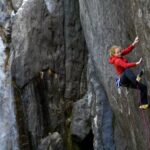Part four Climbing In The Year 2030: Climbing Mentality. Over the last two weeks, climber and author John Burgman has looked into climbing’s crystal ball and predicted how the sport might change over the next 15 years. Today we go back to the future one last time and take a look at potential changes to the climbing mentality.
Climbing Mentality
In a recent Ask Me Anything on Reddit, Lynn Hill was asked about the mental side of climbing, and she responded with her opinion that focus and mental fortitude don’t come so much from other people, rather they are strengthened within oneself. This was an appropriate answer because for a long time external resources—experts, websites, classes, and books—that targeted the mental side of climbing did not exist.
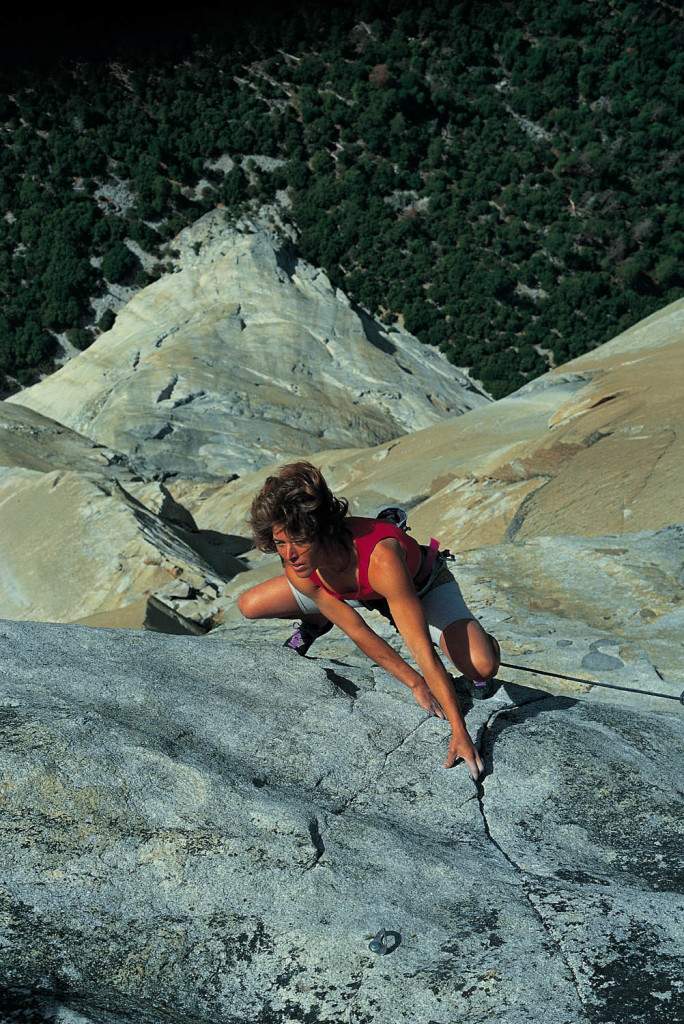
The mental fortitude that Lynn Hill demonstrates could be a focus in the future of climbing. Photo credit: Royal Robbins
As a result, for many climbers, diving into psychological motivations and working on mental toughness for routes—or bouldering problems—long involved a sort of jury-rigged hodgepodge of non-climbing sources forcefully poured into one’s own climbing mold; take a meditation exercise that you learned in a yoga class, combine it with a visualization technique from a self-help podcast, use a little of that anti-anxiety breathing technique that a former roommate taught you, and apply it all to whatever crux is tripping you up at your crag.

In the future, a greater emphasis may be placed on the mental game, as Arno Ilgener teaches in Rock Warrior’s Way.
Recipes like that aren’t necessarily categorically ineffective, but they also leave a lot of room for inadequacy and futility. Plus, since it’s hard for such mental-training medleys to be sufficiently explained, it’s hard for anyone else to build on them and improve them.
There have been a few resources that have targeted climbing’s mental side and found great success in the past 15 years—Arno Ilgner’s book, The Rock Warrior’s Way, comes to mind, as does Vertical Mind by Don McGrath and John Elison. But such gems don’t exist in the big numbers that we will see if climbing continues its trajectory into the forefront of the public’s consciousness in the next 15 years. (Consider that a quick Google search of books on the mental side of baseball, a sport that covers arguably less kinesthetic and philosophic ground than climbing but is certainly more mainstream, yielded 25 results. Climbing yielded only four.)
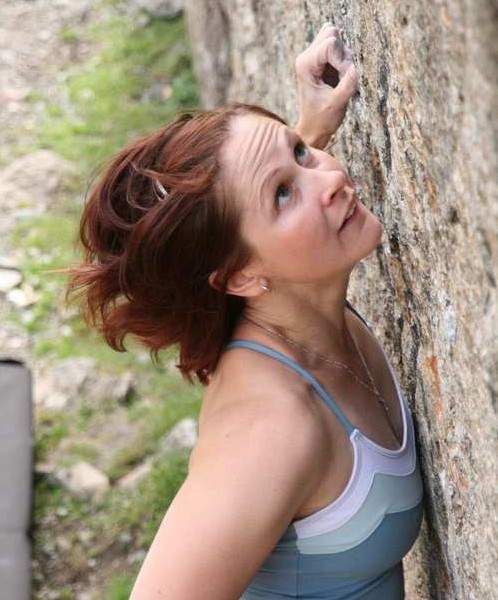
Rebecca Williams combines her psychologist training with climbing to teach climbers how to climb smarter.
Climbers have long recognized the important role that the mind plays in having successful ascents, negotiating tricky sequences, and lessening anxiety, but it’s only fairly recently that such acknowledgment has translated into academic research on any widespread scale, and with that, gains in actively training climbers’ minds like gyms train climbers’ physicality.
Sure, academic papers have been written on climbing psychology as far back as the 1960s and 70s, but institutes and entrepreneurs that funnel academic findings into educational programs and business models are still rare. However, one of the pioneers of this whole mental movement in climbing is Dr. Rebecca Williams, of Britain’s Smart Climbing. Smart Climbing actually does offer courses and workshops geared exclusively at the psychological performance of climbers. Mindfulness exercises, cognitive-behavioral therapy, hypnosis, and other methods have all been used to meet the needs and performance goals of Smart Climbing clients—and all of which have nothing to do with finger strength, core strength, and flexibility, or muscle development.

Will Climbing Become Part Of The Olympics In The Future?
Like other experts, Williams, a clinical psychologist, sees climbing in the Olympics as opening new possibilities for exposure and innovation, but particularly in the personalized mental-training realm. “If climbing gets into the Olympics, it will be the single factor, I think, that will result in more funding, and in climbing psychology becoming more mainstream for the elite,” she says. “At the moment, part of the climbing culture is a DIY kind of model, which also applies to sport psychology; very few of the top British climbers seek help from a psychologist, but many have read sports psychology books if you check out their blogs.
But if climbing goes to the Olympics in the future, then suddenly there will be more interest in gaining every competitive edge, and that could be the time to be a sports psychologist specializing in climbing.”
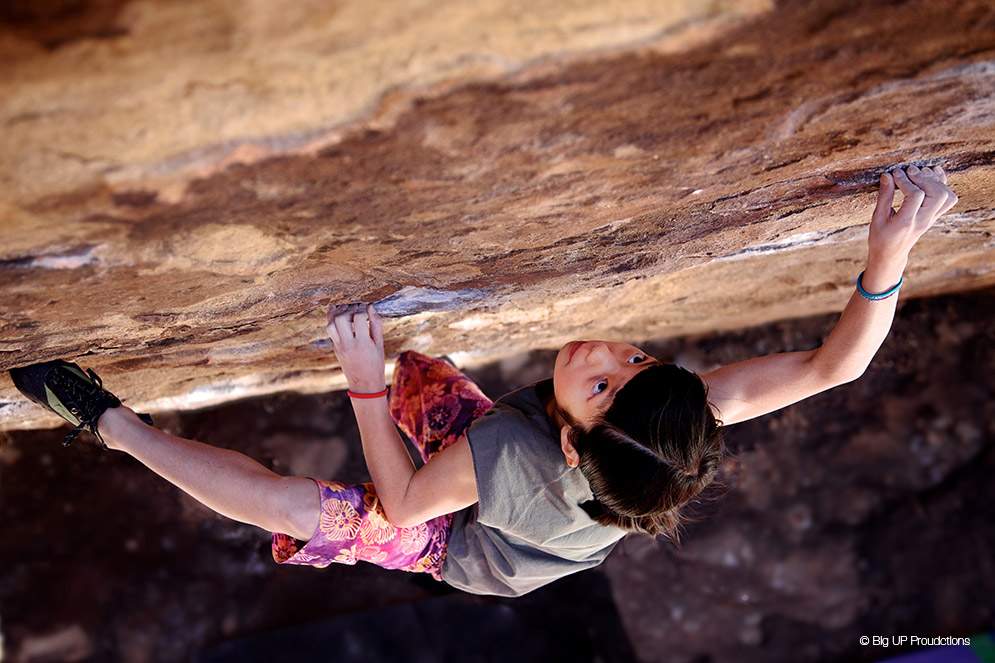
Will Ashima Be One Of The First To Climb V17?
It goes without saying, though, that most climbers will never achieve elite status, so what will the effects of such mainstream exposure in the next 15 years have on the abundance of amateurs and recreational climbers of the world? If a future superstar of the sport crushes a few V17s or a V18 bouldering problem in the year 2030, for example, it will undeniably have a trickle-down psychological effect that is both inspiring and potentially damaging—especially for youths.
Williams explains: “What strikes me is how quickly women’s performance is catching men’s performance, and also we have some very young climbers—men and women—doing some really hard stuff. It’s interesting psychologically because it’s as if, for the elite women and juniors, a mental barrier has been broken and those hard grades have suddenly become accessible for a bunch of people. Of course, what that means for the rest of us—suddenly the gap between the elite climbers and us is increasing, and that leads to a lot of recreational climbers putting themselves under immense pressure.
That is ultimately counterproductive.” She adds, “Confidence can be gained vicariously, but you have to see people like you doing things that you want to do. I think in the future the elite will feel too different from the rest of us.”
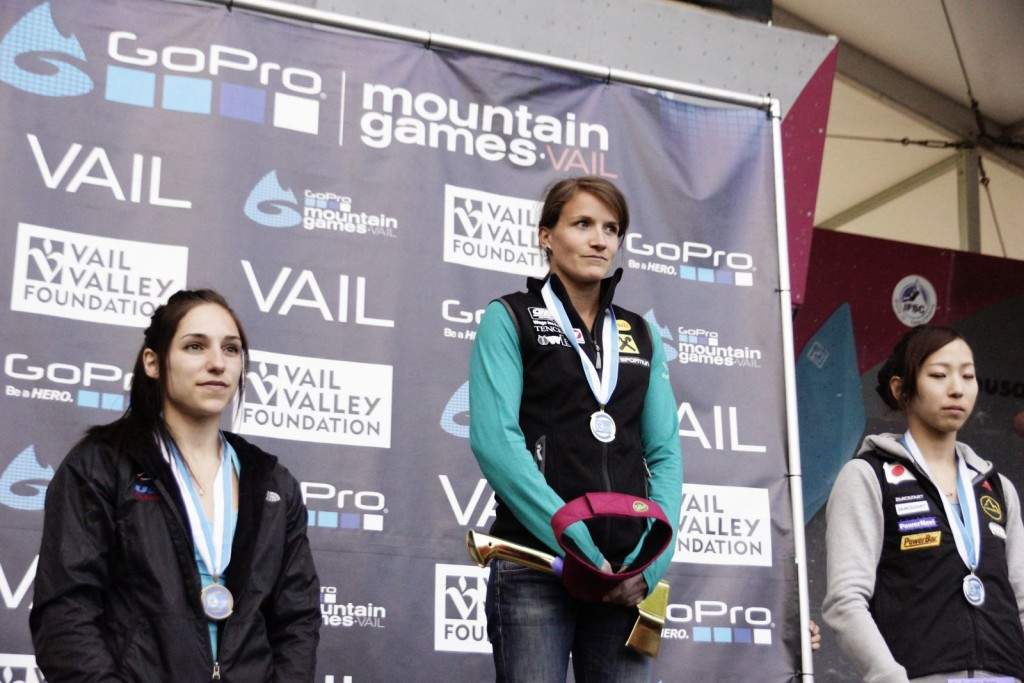
Climber Body Image Is One Issue To Keep An Eye On In The Future
It’s fitting that the final leg of the speculative journey into the next 15 years of climbing points not to grades being demolished, palatial training facilities and anti-gravity gyms being constructed, or any new gear craze, but to the importance of the climbing tribe—a social network in the real sense, not the Facebook type, but the climbing community that will remain a vital part of the sport’s development.
“The climbing media is really interesting to me, and I think that is going to play with people mentally in ways we have not yet begun to imagine,” Williams says. “We know from studies that for female adolescent athletes, seeing sexualized images of female athletes can lead to worse self-esteem and an unhealthy body image, so it will be important that the climbing community begins to think about the impact of media portrayals of climbers soon—for the mental health of that generation who are coming up now. Eating disorders, in particular, springs to mind, and we’ll need to be cautious.”
Speaking of body image, Crux Crush is still working on writing up the results of the body image survey you all contributed to and will share that with you in the next few months!
Thank you John for sharing your speculative journey with us. For more on the future of climbing check out Parts One, Two, and Three of the series. Readers, what are your thoughts on our future?




